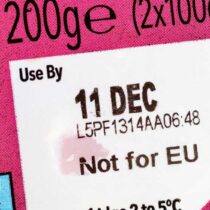Is British meat marketing up to the job or lacking sizzle?
The following article was written by Nick Allen, Chief Executive Officer at the British Meat Processors Associationand appeared in the July edition of Meat Management magazine. It is reproduced here with their permission
As we prepare to leave the single market we need to start thinking about persuading overseas consumers that ‘British is best.’ The meat industry is currently not set up to do this effectively.
How do consumers see British food?
According to a 2015 Nation Brands Index study, Britain is not strongly associated with food as an export. A recent AHDB ‘Horizons’ report shows that overall awareness of British food amongst overseas consumers is very low. Only 4% of respondents associate ‘British food’ with meat; and no food type got over a 5% response.
Another AHDB report suggests that, while UK people feel positive about buying British and say they would try to do so whenever they can, they are increasingly price-sensitive. Even a modest price increase of 10% could see 30% of shoppers opting for lower priced imports. Younger shoppers are also finding ‘Britishness’ less compelling, basing their buying decisions instead on quality, health and convenience.
Are we marketing British meat effectively?
The ‘Britain is Great’ campaign is focused on a generalpositioning of Britain as an attractive destination for tourism, education and investment; it is not a focused product category campaign. We, as a sector, need to deliver more targeted marketing that is specific to the tastes and demands of each of our different geographical markets.
The meat industry in the UK is currently not putting out a properly funded, concerted message that everyone can get behind. We have multiple fragmented organisations representing subsets of the industry, each committing small budgets to an individual message. We need more collaboration and pooling of resource to get more ‘bang for our buck’.
The meat industry in the UK is currently not putting out a properly funded, concerted message that everyone can get behind.
This approach works extremely well in other countries. Australia’s levy board, Meat and Livestock Australia (MLA) is a prime example of this. As the name suggests, they span the whole meat industry from farm to fork, which contributes to their effectiveness.
Through careful stewardship of the brand, MLA have managed to establish meat as part of the national identity, injecting a heavy dose of patriotism and pride into their marketing campaigns over the years. The result is that MLA has managed to build a formidable position for Australian meat in the minds of consumers.
Funding is also a significant driver of success. In the 2016-7 financial year MLA spent £30.5m (A$53.9m) on marketing red meat aloneto consumers. Their entire budget for marketing, promotion and market intelligence was £50.4m (A$88.9m), which is set to rise.
Contrast that with around £10m spent on marketing over the same period in the UK and overseas by MLA’s equivalent levy body, AHDB Beef and Lamb. Per capita the difference is significant: £1.27 (A$2.24) per citizen in Australia versus around £0.16 in the UK.
There seems to be an appetite for collaboration among industry groups here in the UK but currently no one is stepping up to take the lead. However, without a clear, cohesive and well-funded message, the British meat and livestock sector will come under increasing pressure from different quarters but with dwindling resources to fight back.







